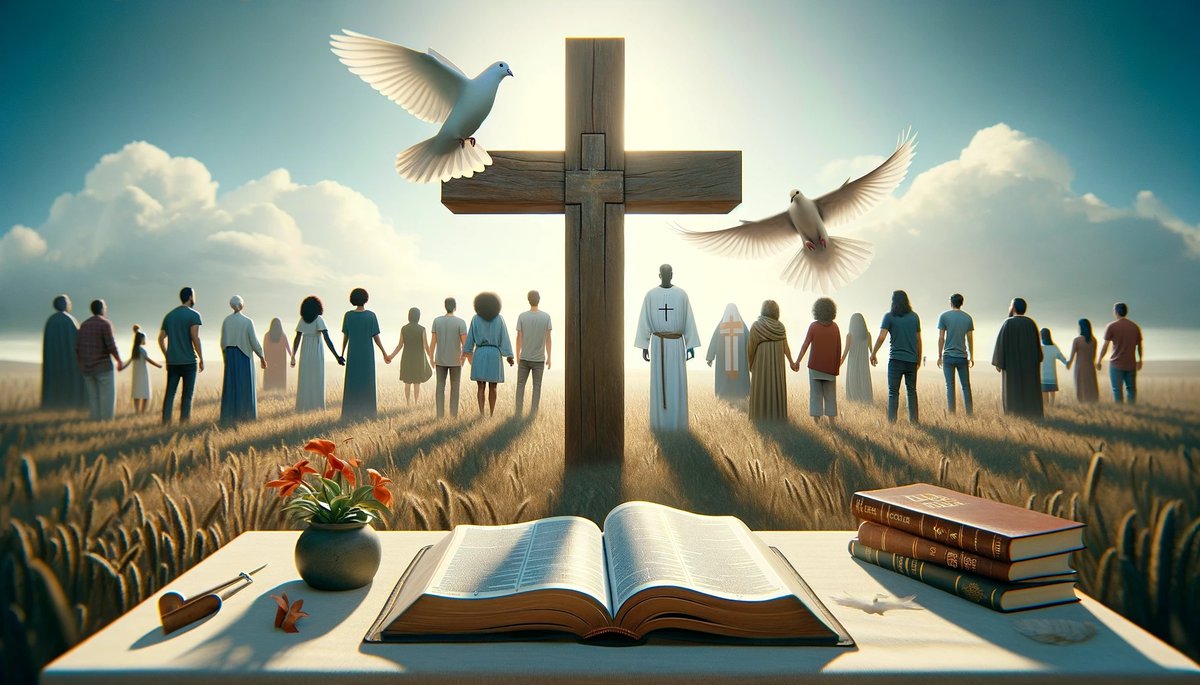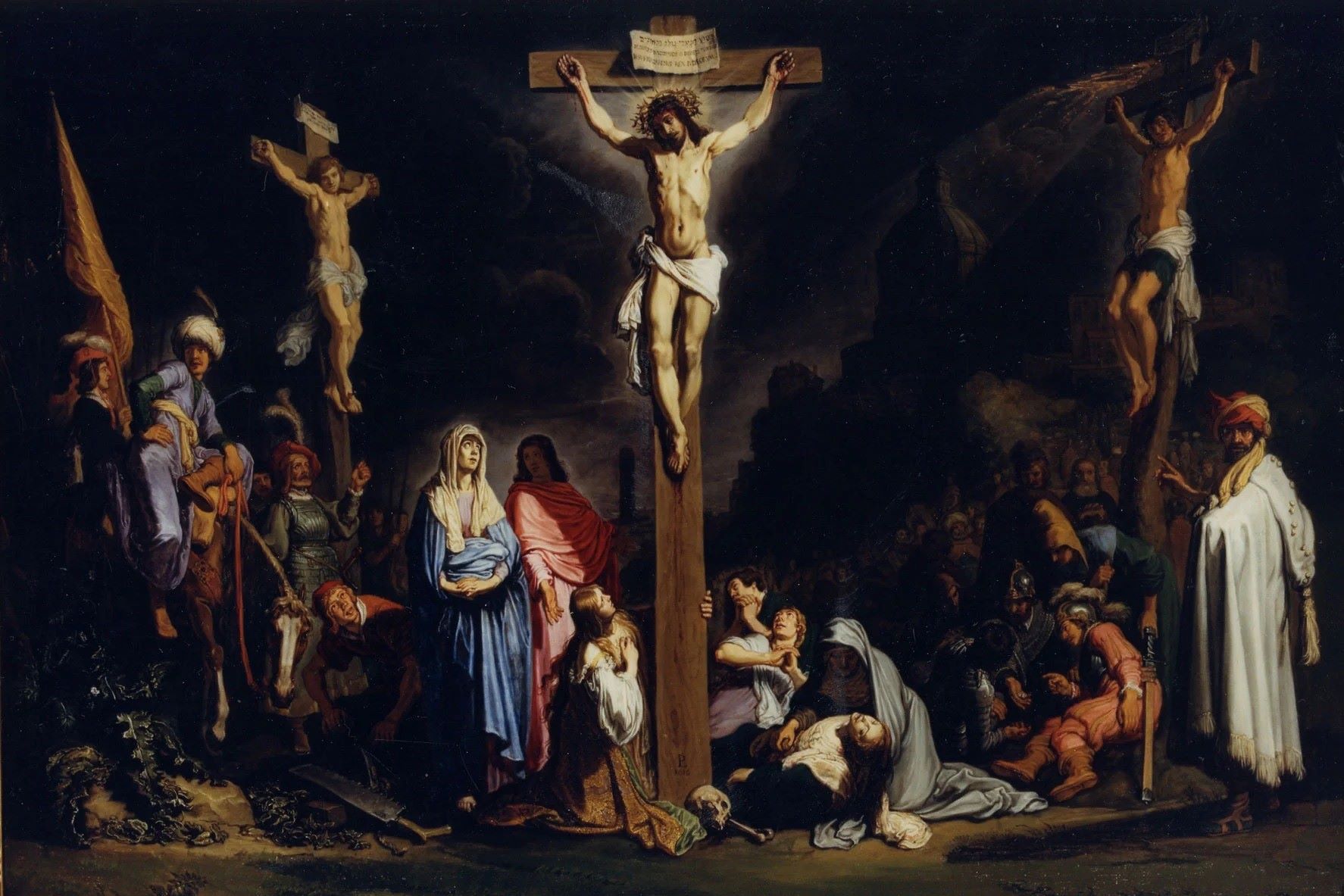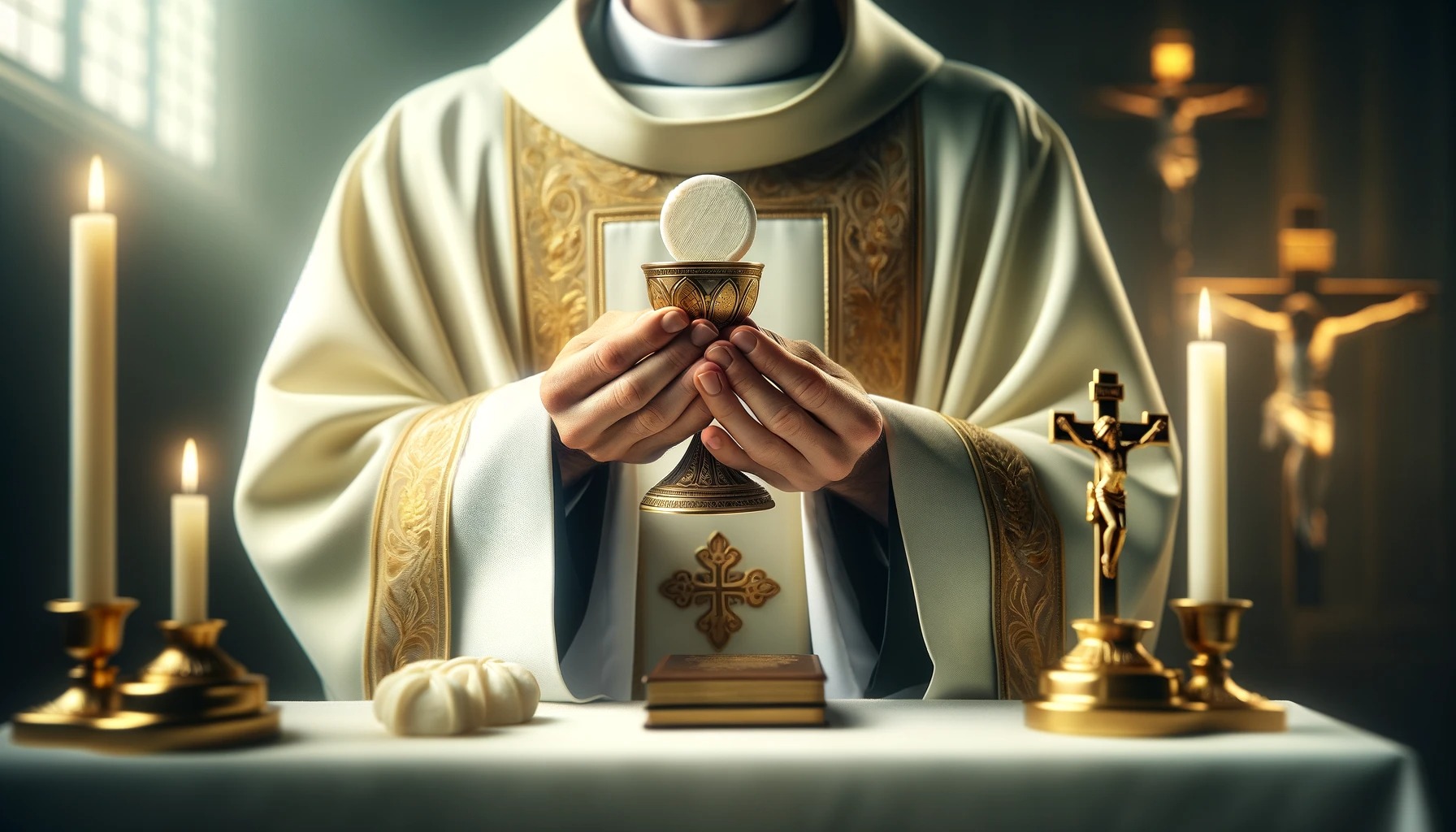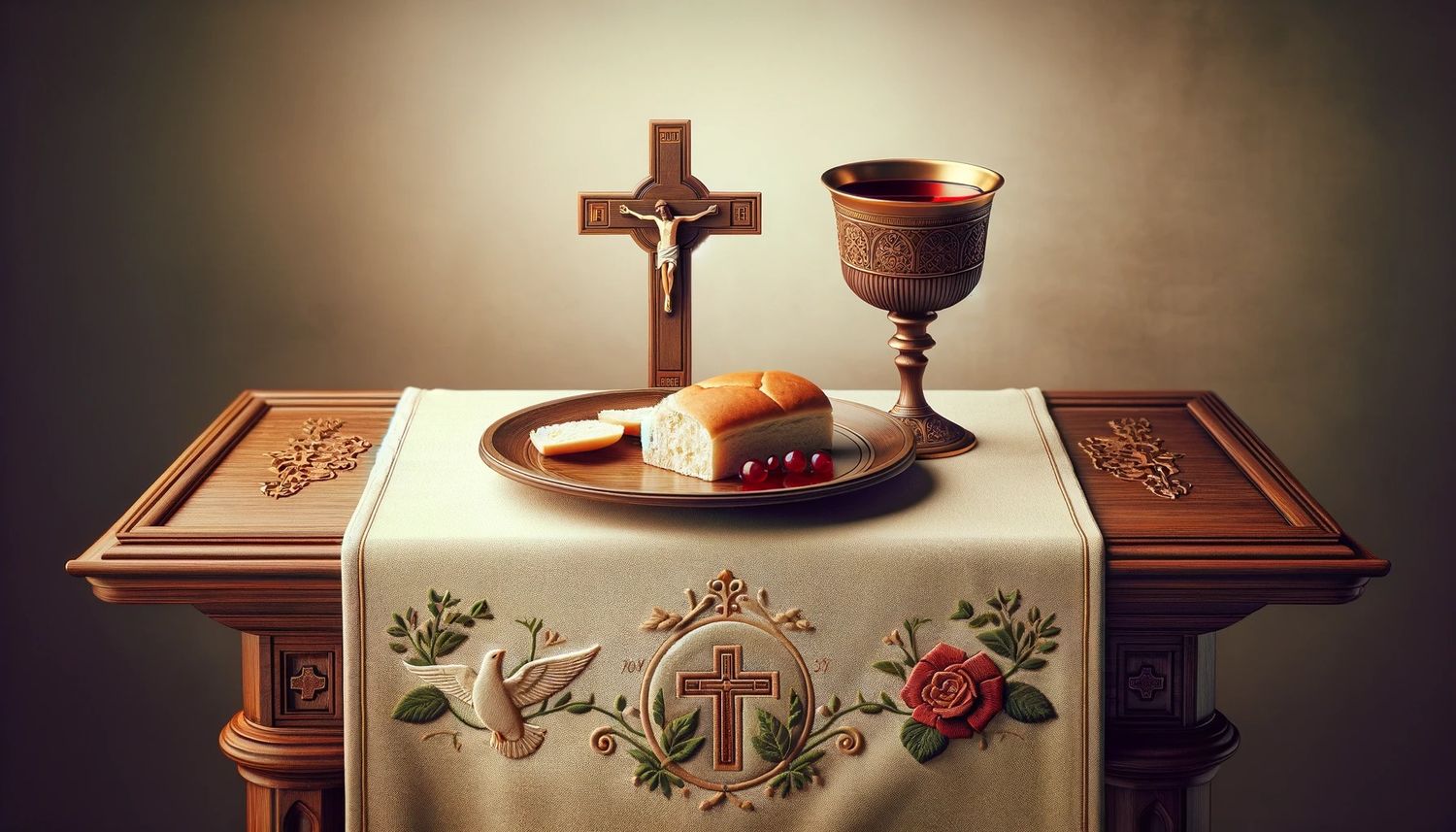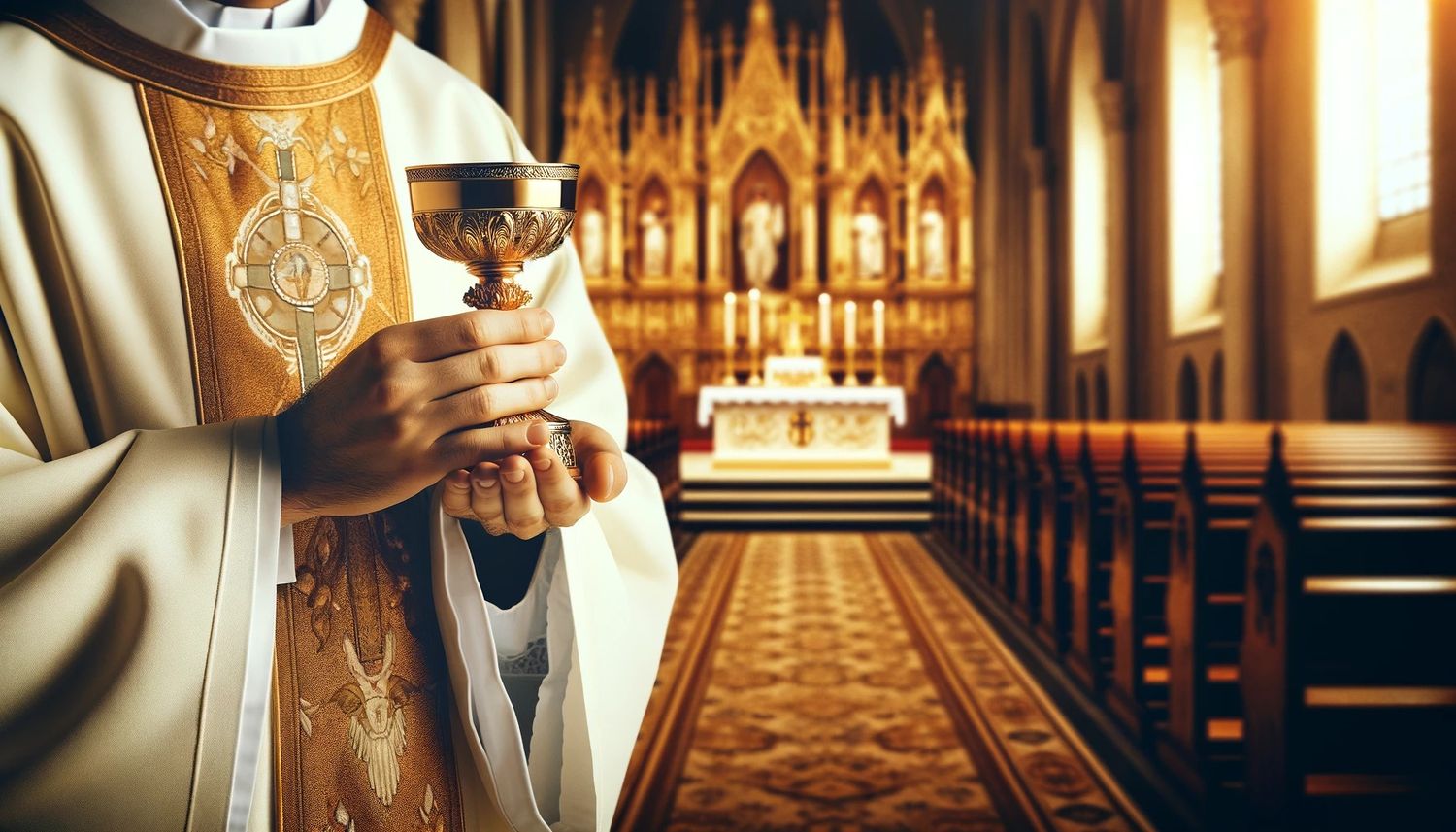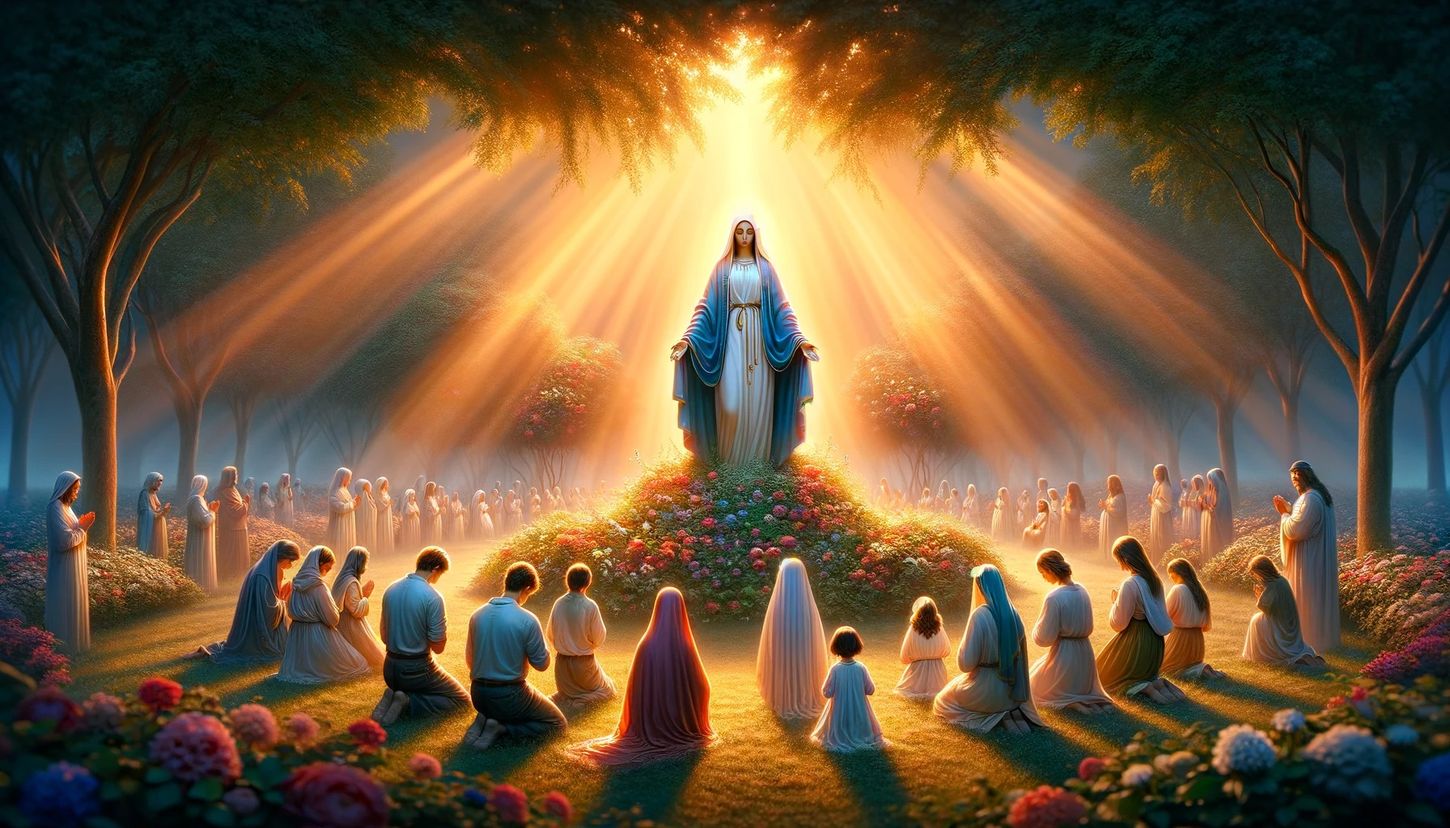Home>Theology and Spirituality>What Does Catholicism Believe In
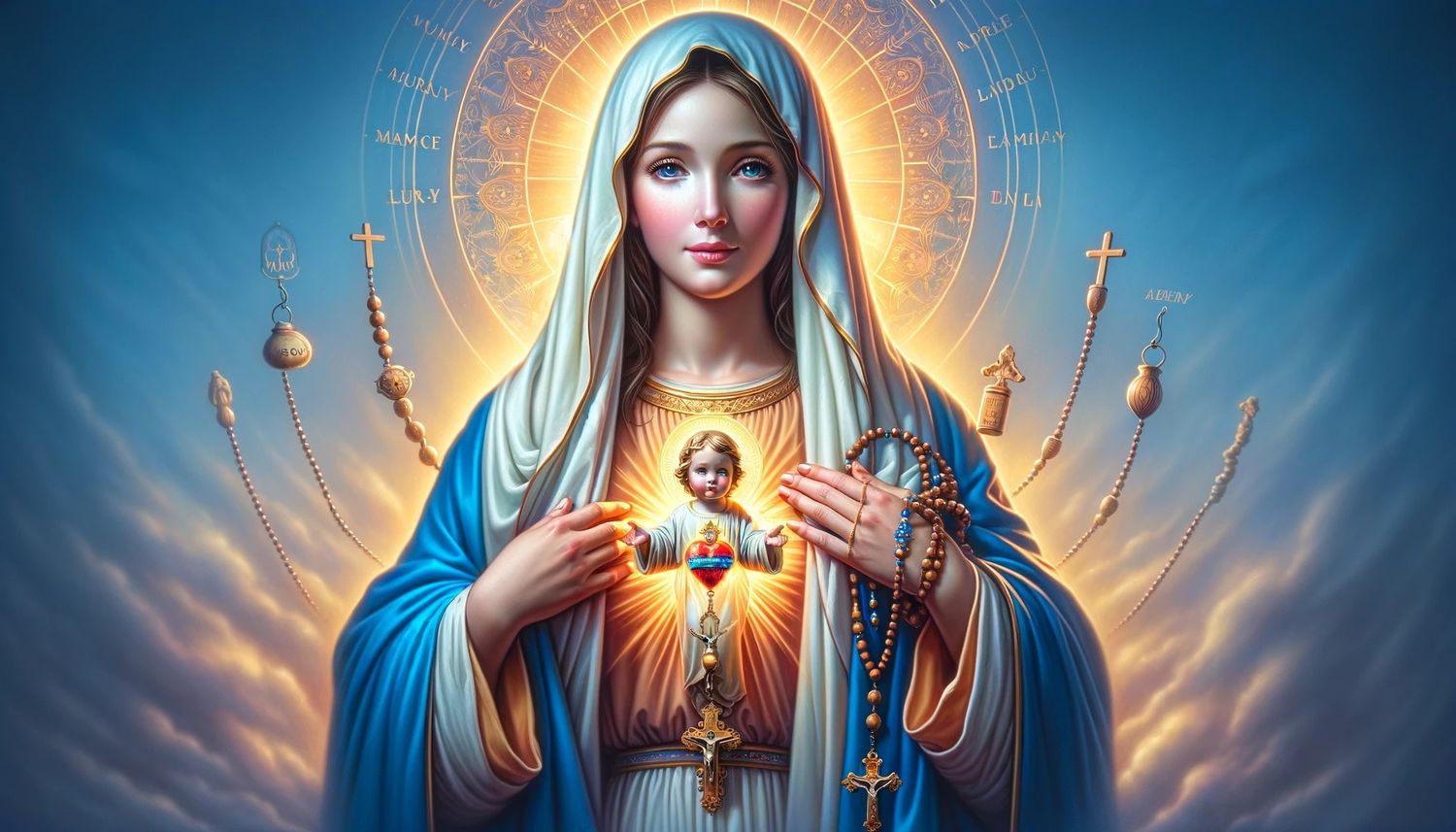

Theology and Spirituality
What Does Catholicism Believe In
Published: February 18, 2024
Jason DeRose, Managing Editor at Christian.net, uses his expertise in religion and journalism to deepen understanding of faith's societal impacts. His editorial leadership, coupled with a strong academic background, enriches the platform’s diverse content, earning him recognition in both journalism and religious circles.
Discover the core beliefs and teachings of Catholicism in theology and spirituality. Explore the rich traditions and values of the Catholic faith.
(Many of the links in this article redirect to a specific reviewed product. Your purchase of these products through affiliate links helps to generate commission for Christian.net, at no extra cost. Learn more)
Table of Contents
Introduction
Catholicism, one of the oldest and most widespread branches of Christianity, is deeply rooted in tradition, theology, and spirituality. With over a billion followers worldwide, it holds a significant place in the religious landscape, shaping the lives and beliefs of countless individuals.
At its core, Catholicism is centered on the life and teachings of Jesus Christ, whom Catholics believe to be the Son of God and the savior of humanity. The faith is guided by the teachings of the Bible, the traditions of the early Christian Church, and the interpretations of the Magisterium, the Church's teaching authority.
Catholicism encompasses a rich tapestry of beliefs, rituals, and moral principles that provide a framework for understanding the nature of God, the purpose of human existence, and the path to spiritual fulfillment. Central to Catholic doctrine is the belief in the Holy Trinity, the sacraments, the Virgin Mary, the intercession of saints, and the authority of the Church.
The Catholic Church, with its hierarchical structure and global presence, serves as a unifying force for believers, offering spiritual guidance, community support, and a sense of continuity with the apostolic tradition. Its rituals, liturgies, and devotional practices form an integral part of the lived experience of Catholic faith, fostering a deep sense of connection to the divine and to fellow believers.
Throughout history, Catholicism has played a pivotal role in shaping art, culture, ethics, and social justice, leaving an indelible mark on the world. Its teachings on compassion, charity, and the dignity of every human person continue to inspire individuals and communities to work towards a more just and compassionate society.
In this article, we will delve into the core beliefs and practices of Catholicism, exploring its theological foundations, spiritual dimensions, and the profound impact it has had on the lives of its adherents. By gaining a deeper understanding of what Catholicism believes in, we can appreciate the richness and complexity of this ancient faith tradition.
The Holy Trinity
The concept of the Holy Trinity lies at the heart of Catholic theology, representing the mystery of God's triune nature as Father, Son, and Holy Spirit. This foundational belief underscores the unity and diversity within the Godhead, affirming that the three divine persons are distinct yet inseparable, co-equal and co-eternal. The Trinity is not a simple mathematical equation but a profound mystery that transcends human comprehension, inviting believers to contemplate the unfathomable nature of God.
The first person of the Trinity, God the Father, is the creator of the universe and the source of all existence. He is revered as the loving and merciful Father who sustains and nurtures his creation, embodying the qualities of wisdom, providence, and divine sovereignty. The Father's role in the Trinity reflects the divine origin and authority from which all things emanate.
The second person of the Trinity, Jesus Christ, is the Son of God who took on human form, entering into the world to redeem humanity through his life, death, and resurrection. Catholics believe that Jesus, fully divine and fully human, reveals the compassionate and salvific nature of God, offering a path to reconciliation and eternal life. The Incarnation, the central mystery of the Christian faith, demonstrates God's profound solidarity with humanity and the transformative power of divine love.
The third person of the Trinity, the Holy Spirit, is the divine presence that animates and sanctifies the Church and the individual believer. Often symbolized by the image of a dove or tongues of fire, the Holy Spirit represents the ongoing work of God in the world, inspiring faith, guiding conscience, and empowering the faithful to live out their vocation. The Spirit's gifts and fruits, as described in the New Testament, enable believers to bear witness to the Gospel and build up the community of faith.
The doctrine of the Trinity not only shapes the understanding of God but also informs the Christian understanding of relationships, community, and the nature of love. It underscores the interconnectedness of the divine persons and invites believers to embrace the unity in diversity, mirroring the harmonious communion within the Godhead. The Trinitarian formula of baptism and the Trinitarian doxology in liturgical prayers serve as constant reminders of the triune nature of God, inviting believers to enter into the mystery of divine love and communion.
In essence, the Holy Trinity stands as a profound expression of the multifaceted nature of God, inviting believers to contemplate the depths of divine love, unity, and relationality. It serves as a cornerstone of Catholic faith, shaping the theological framework and spiritual consciousness of the faithful, and offering a glimpse into the ineffable majesty of the divine.
The Sacraments
The sacraments occupy a central role in Catholic theology, serving as visible signs of God's invisible grace and as channels through which believers encounter the divine presence. Rooted in the teachings of Jesus Christ and the practices of the early Christian community, the sacraments embody the sacred moments in which God's saving love is made manifest in the lives of believers.
Catholicism recognizes seven sacraments, each with its distinctive significance and spiritual efficacy. These include Baptism, Confirmation, Eucharist, Reconciliation (Penance), Anointing of the Sick, Holy Orders, and Matrimony. Each sacrament is imbued with profound symbolism and ritual actions, designed to convey and actualize the grace they signify.
Baptism, the gateway to the Christian life, initiates individuals into the faith community, cleansing them from sin and bestowing upon them the status of adopted children of God. Through the pouring of water and the invocation of the Holy Trinity, Baptism marks the beginning of a lifelong journey of faith and discipleship.
Confirmation, often referred to as the sacrament of the Holy Spirit, strengthens the baptized and equips them with the gifts of the Spirit to live out their Christian vocation. The anointing with chrism oil and the laying on of hands signify the outpouring of the Spirit's gifts, empowering the recipients to bear witness to the Gospel and to actively participate in the life of the Church.
The Eucharist, the sacrament of the Body and Blood of Christ, holds a central place in Catholic worship and spirituality. Through the consecration of bread and wine, which becomes the true presence of Christ, believers partake in the sacrificial meal, uniting themselves with Christ and with one another in the mystical body of the Church.
Reconciliation, also known as Penance or Confession, offers the opportunity for repentance and forgiveness, reconciling the penitent with God and the community. The act of confessing sins to a priest and receiving absolution signifies the restoration of spiritual wholeness and the experience of God's mercy and healing.
Anointing of the Sick, administered to the ill or those facing serious health challenges, brings comfort, strength, and spiritual healing. The anointing with oil and the prayer of the faith community express the compassionate presence of Christ amidst human suffering, offering hope and courage in the face of illness.
Holy Orders, conferred upon deacons, priests, and bishops, sets individuals apart for the ministry of leadership, service, and sacramental mediation within the Church. The laying on of hands and the prayer of consecration mark the entrustment of authority and the call to shepherd God's people in love and fidelity.
Matrimony, the sacrament of marriage, unites a man and a woman in a lifelong covenant of love, fidelity, and mutual support. The exchange of vows and the blessing of the union signify the sacred bond that reflects the love between Christ and the Church, inviting the couple to be a sign of God's love in the world.
The sacraments, as sacred encounters with the divine, infuse the ordinary moments of human life with extraordinary grace and significance. They serve as tangible expressions of God's love and presence, inviting believers to deepen their relationship with God and to participate in the redemptive work of Christ. Through the sacraments, Catholicism offers a profound vision of the sacred within the material world, affirming the transformative power of God's grace in the lives of believers.
The Virgin Mary
The Virgin Mary holds a unique and revered position in Catholic theology and spirituality, embodying the ideal of faith, humility, and maternal love. As the mother of Jesus Christ, she is venerated as the Theotokos, the God-bearer, and is regarded as the epitome of holiness and devotion. Mary's significance extends beyond her historical role as the mother of Jesus; she is revered as a model of faith for all believers and as a compassionate intercessor who embodies the Church's maternal care for its members.
Catholic devotion to Mary encompasses a rich tapestry of beliefs and practices, including prayers, devotions, and Marian feasts. The doctrine of the Immaculate Conception asserts that Mary was conceived without original sin, thus preparing her to be a fitting vessel for the Incarnation of the Son of God. This belief underscores Mary's unique role in salvation history and her singular cooperation with God's plan for the redemption of humanity.
The title of "Mother of God" (Theotokos) emphasizes Mary's central role in the mystery of the Incarnation, affirming the inseparable unity of Jesus' divine and human natures. This title, affirmed at the Council of Ephesus in 431, underscores Mary's pivotal role in the divine economy of salvation and her intimate connection to the life and mission of Jesus Christ.
Catholic piety towards Mary is expressed through a variety of prayers, such as the Hail Mary and the Rosary, which reflect on the key moments of Christ's life and invite Mary's intercession. Marian apparitions, such as those at Lourdes and Fatima, have also played a significant role in shaping popular devotion to Mary, offering messages of prayer, repentance, and hope to the faithful.
Mary's maternal intercession is believed to be powerful and efficacious, as she is seen as a compassionate advocate who brings the prayers and needs of the faithful to her Son. The Church's teachings on Mary affirm her as the "new Eve," who, through her obedience and faith, undoes the disobedience of the first Eve, thus playing a crucial role in the restoration of humanity's relationship with God.
In Catholic spirituality, Mary is revered as the exemplar of discipleship and faith, embodying virtues such as humility, purity, and unwavering trust in God. Her fiat, her "yes" to the angel Gabriel at the Annunciation, serves as a model of openness to God's will and a profound expression of surrender to divine providence.
Overall, the veneration of the Virgin Mary in Catholicism reflects the deep reverence for her maternal role in the life of the Church and her enduring significance as a source of inspiration, comfort, and hope for believers. Mary's presence in Catholic theology and spirituality serves as a testament to the profound impact of her life and witness, offering a compelling example of faith and love for all generations of believers.
The Saints
In Catholicism, the veneration of saints holds a significant place, reflecting the belief in the communion of saints and the enduring bond between the Church on earth and the heavenly realm. Saints, as exemplars of Christian virtue and models of holiness, inspire and guide believers in their spiritual journey, offering tangible examples of faith, courage, and selfless love.
The process of canonization, through which individuals are officially recognized as saints, involves a rigorous investigation into their lives, writings, and the occurrence of miracles attributed to their intercession. Once canonized, saints are venerated as heavenly advocates and patrons, with each being associated with specific causes, professions, or aspects of life. This rich tapestry of saints reflects the diverse expressions of holiness and the universal call to sanctity within the Christian tradition.
The lives of the saints, as recorded in hagiographies and traditions, offer a treasure trove of narratives that illustrate the transformative power of grace and the resilience of faith in the face of adversity. From the early martyrs who bore witness to their faith through persecution to the mystics and theologians who delved into the depths of divine love, the saints embody the varied manifestations of Christian discipleship and the pursuit of spiritual perfection.
Devotion to the saints is expressed through prayers, liturgical commemorations, and the dedication of churches and shrines in their honor. The intercession of the saints is believed to be potent and efficacious, as they are seen as close allies in the spiritual warfare and as compassionate advocates who bring the prayers and needs of the faithful before the throne of God.
The feast days of saints punctuate the liturgical calendar, inviting believers to celebrate the lives and legacies of these holy men and women. These commemorations serve as reminders of the enduring impact of the saints on the life of the Church and as opportunities for believers to seek their intercession and emulate their virtues in their own lives.
The veneration of saints in Catholicism underscores the belief in the communion of the Church, both militant and triumphant, and the conviction that the saints, through their example and intercession, continue to accompany and support the faithful on their earthly pilgrimage. Their lives bear witness to the transformative power of grace and the universal call to holiness, inspiring believers to strive for spiritual excellence and to seek the guidance and companionship of these heavenly patrons.
The saints, as spiritual companions and intercessors, embody the timeless relevance of the Christian message and offer a source of encouragement, hope, and inspiration for all who seek to walk the path of faith and discipleship.
Read more: What Does Free Will Baptist Believe
The Bible
The Bible, also known as the Holy Scriptures, stands as the foundational text of the Catholic faith, serving as a source of divine revelation, spiritual nourishment, and moral guidance. Comprising the Old Testament and the New Testament, the Bible encapsulates the sacred narrative of God's relationship with humanity, offering a comprehensive account of creation, salvation history, and the teachings of Jesus Christ.
The Old Testament, inherited from the Jewish tradition, contains a rich tapestry of narratives, laws, prophecies, and wisdom literature that trace the covenantal relationship between God and the people of Israel. It encompasses the accounts of creation, the patriarchs, the exodus from Egypt, the establishment of the Davidic kingdom, and the prophetic messages that call for justice, repentance, and fidelity to God's commandments. The Old Testament serves as a testament to God's faithfulness, mercy, and enduring love for His people, providing a profound understanding of the human condition and the divine plan for redemption.
The New Testament, centered on the life, teachings, death, and resurrection of Jesus Christ, represents the culmination of God's salvific work in the world. It comprises the four Gospels, the Acts of the Apostles, the Epistles, and the Book of Revelation, offering a comprehensive portrayal of the life and mission of Jesus, the early Christian community, and the eschatological hope for the fulfillment of God's kingdom. The Gospels, in particular, present the life and teachings of Jesus, revealing His compassion, wisdom, and redemptive sacrifice, and inviting believers to embrace the message of the Kingdom of God.
Catholicism regards the Bible as the inspired and authoritative Word of God, containing the truths necessary for salvation and the moral and spiritual formation of believers. The Church, through its Magisterium, interprets and safeguards the integrity of the biblical message, ensuring its faithful transmission and application in the life of the faithful. The Bible is revered as a living document that continues to speak to the hearts and minds of believers, offering timeless wisdom, comfort, and illumination for the journey of faith.
The reading and study of the Bible occupy a central place in Catholic spirituality, with the practice of Lectio Divina, the prayerful reading of Scripture, serving as a means of encountering the living Word of God. The liturgical celebrations, particularly the Mass, integrate the proclamation of the Scriptures, emphasizing their role in nourishing the faith of the community and fostering a deeper communion with God.
In essence, the Bible stands as the living testimony of God's self-revelation and the enduring witness to the transformative power of divine love. Its narratives, teachings, and prophetic visions continue to inspire, challenge, and console believers, inviting them to immerse themselves in the sacred story of salvation and to respond to the call of discipleship with faith, hope, and love.
The Church and Papal Infallibility
The concept of papal infallibility is a defining aspect of Catholic doctrine, shaping the understanding of the Church's authority and the preservation of divine truth. According to Catholic teaching, papal infallibility refers to the charism granted by the Holy Spirit to the Pope, the successor of St. Peter, to proclaim official teachings on matters of faith and morals without error. This charism is understood to be exercised in specific circumstances and is not applicable to all statements made by the Pope.
The doctrine of papal infallibility was formally defined at the First Vatican Council in 1870, affirming that when the Pope speaks ex cathedra, from the chair of Peter, on matters of faith and morals, he does so with the assistance of the Holy Spirit and is preserved from error. This charism is seen as a safeguard for the Church, ensuring the fidelity of its teachings and the unity of the faithful in matters essential to the Christian faith.
Papal infallibility is not a license for the Pope to make arbitrary decisions or to impose personal opinions on matters unrelated to faith and morals. Rather, it is a solemn recognition of the Pope's role as the visible head of the Church and as the custodian of the deposit of faith handed down from the apostles. The exercise of papal infallibility is a rare occurrence, typically reserved for defining dogmatic truths that are essential to the Church's understanding of revelation and the Christian life.
The doctrine of papal infallibility is closely linked to the Church's understanding of its magisterial authority, which encompasses the Pope and the college of bishops in union with him. The Pope, as the Vicar of Christ and the successor of Peter, is entrusted with the task of confirming his brethren in the faith and of preserving the Church in unity and truth. The exercise of papal infallibility underscores the Church's belief in the guidance of the Holy Spirit and the assurance that the Church will not err in matters essential to the proclamation of the Gospel.
In summary, the doctrine of papal infallibility reflects the Catholic Church's conviction that the Holy Spirit continues to guide and protect the Church in its proclamation of the Gospel and the transmission of divine revelation. It underscores the unity of the Church under the leadership of the Pope and affirms the Church's commitment to preserving and proclaiming the truths of the Christian faith with fidelity and clarity.
Salvation and the Afterlife
Salvation and the afterlife hold profound significance in Catholic theology, offering a framework for understanding the ultimate destiny of humanity and the redemptive work of Christ. Central to Catholic belief is the understanding that salvation is a gift of God's grace, offered to all who respond in faith and live in accordance with the teachings of Christ and the Church.
Catholicism teaches that salvation is achieved through the life, death, and resurrection of Jesus Christ, who, as the Son of God, offered himself as a sacrifice for the forgiveness of sins and the reconciliation of humanity with God. Through his redemptive act, Christ opened the way to eternal life, offering the promise of salvation to all who believe in him and follow his commandments.
The Catholic Church emphasizes the role of faith and good works in the process of salvation. While faith in Christ is the foundation of salvation, believers are called to express their faith through acts of love, mercy, and justice. The sacraments, particularly Baptism and the Eucharist, are seen as essential means through which believers receive and nourish the grace of salvation, uniting themselves with Christ and the community of believers.
The Catholic understanding of the afterlife encompasses the belief in the resurrection of the body and the life of the soul after death. The Church teaches that after death, each person will face a particular judgment, in which their eternal destiny will be determined based on their response to God's grace and their actions in this life. Those who die in a state of grace, having been reconciled with God, are destined for the beatific vision, the direct encounter with God in heaven, where they will experience eternal joy and fulfillment in the presence of the divine.
Conversely, those who die in a state of mortal sin, having rejected God's grace and love, are separated from God and face the possibility of eternal damnation. The Church's teachings on hell underscore the reality of the consequences of sin and the need for repentance and reconciliation with God. Purgatory, a temporary state of purification for those who die in God's grace but are not yet fully purified, is also part of the Catholic understanding of the afterlife, emphasizing the transformative power of God's mercy and the hope for ultimate reconciliation.
In summary, the Catholic understanding of salvation and the afterlife offers a vision of hope, redemption, and the fulfillment of God's plan for humanity. It underscores the transformative power of God's grace, the call to respond in faith and love, and the assurance of eternal life in communion with God and the community of believers.
